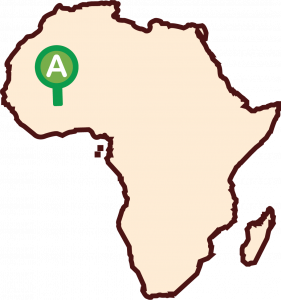H3Africa Research Project
Clinical and Genetic Studies of Hereditary Neurological Disorders in Mali
The Goal: to identify African patients/families with hereditary neurological disorders and to identify their underlying genetic defects.
Project Leads
The Problem
Neurological disorders present public health challenges globally with total disability-adjusted life years (DALYs) greater than some infectious diseases. These challenges are even greater when considering hereditary neurological diseases that cause premature death, severe disability and loss of productivity, resulting in high health care costs. Although most are currently untreatable, increasing awareness and community engagement about hereditary neurological disorders can reduce this burden. Additionally, to understand the mechanism of all genetic disorders and come to therapeutics, there is a need to discover all disease-causing genes.
Project Strategy
- Enroll families with and without hereditary neurological disorders; collect demographical data and perform routine clinical and laboratory testing to accurately assess the condition of patients.
- Perform genetic sequencing to identify genes associated with neurological disorders.
- Community engagement activities and conferences in high schools are held to explain our protocol and some basic genetic principles and expose and interest the young generation to science.
Successes and Potential Impact
To date, the project
• Enrolled 327 families totaling 1179 participants (neurology, rheumatology, and pediatrics)
• Identified novel genetic variants (some of the diseases haven’t been previously described in Africa).
• Identified three putative novel genes, and families with negative testing for clinically relevant genes.
• Trained over 10 students and three postdoctoral fellows in genetics and molecular biology.
• Is developing a Master program in medical genetics and post-university training in genetic topics.
• Reinforced the Malian Societies of Human Genetics and Neurosciences
This project is mitigating disparities in genetic health care delivery between developing and developed and had a significant impact by facilitating the training of students and faculty members in genetics and molecular biology. In addition, incentives and resources have been developed to retain and bring back Malian scientists from abroad. This impact will likely be felt for generations to come.
Project Sites

A: Mali
University of Sciences, Techniques and Technology of Bamako, National Institute of Public Health Research, Centre Hospitalier Universitaire de Gabriel Toure, Department of Health
Non-African Collaborators:
USA: NIH, Uniformed Services University of the Health Sciences, Yale University

